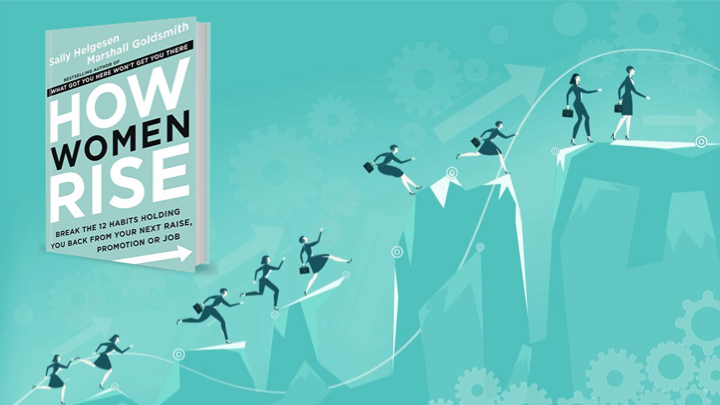How Women Rise – Break the 12 Habits Holding You Back: A Book Review
BOOK RECOMMENDATION
5/24/20223 min read


There is a fantastic book I recommend to women seeking career advancement: How Women Rise, by Sally Helgesen and Marshall Goldsmith. This book was first recommended to me by a colleague when I was working towards a promotion to Manager last year. I learned so much from reading this book that I wanted to pay it forward and share a summary of it. This book discussed 12 habits that hold women back from career advancement, whether it’s the next raise, promotion, or job. If you are an aspiring woman who wants to advance your career, you can’t miss reading this book!
#1: Reluctance to Claim Your Achievement
Women tend to be shy to claim our achievements. A lot of women often work very hard but are bad at bringing attention and visibility to our work. As I often tell junior female consultants that I work with, “Only doing great work is not enough. You need to make sure everyone knows your great work.”
#2: Expecting Others to Spontaneously Notice and Reward Your Contributions
This often goes together with #1 above. A lot of women believe great work speaks for itself. So, if we do an outstanding job, people should notice. Unfortunately, that is not true. I’m not saying we should be obnoxious self-promoters, but we should make sure people know the impact of our work instead of waiting for others to notice.
#3: Overvaluing Expertise
You hear a lot of women say that “I don’t think I’m technical enough”. You do not need to master every single detail of your job, especially if you are in a manager position. Being too obsessed with small details can actually get you stuck because you’ll not have time to think about bigger strategic issues.
#4: Building Rather Than Leveraging Relationships
Women tend to be good at building relationships. However, research found that women are reluctant to leverage these relationships to further help their own ambitions. The reason is that women think exercising leveraging translates to playing politics. Unfortunately, most great careers are built not just on talents or hard work, but also mutual exchange of benefits.
#5: Failing to Enlist Allies from Day One
Women who assume new jobs tend to keep their heads down until they’ve mastered the details and feel fully prepared before reaching out. By contrast, men in new positions tend to reach out to stakeholders since Day One as they see connections as the most important part of the job.
#6: Putting Your Job Before Your Career
Research shows that women tend to give up good opportunities to advance their career because they are too loyal or spending too much time and energy on daily tasks instead of thinking about the big picture and doing what is the best for their career.
#7: The Perfection Trap
Perfection is a trap. Perfection brings you unnecessary stress, keep you stuck on details and sets you up for disappointment because perfection is just not realistic. Women are vulnerable to the perfection trap. Do you still remember last time when you gave yourself a hard time for a small failure? Be nicer to yourself going forward. You are not a saint. It’s OK to make mistakes.
#8: The Disease to Please
The desire to make others happy in all circumstances is called “the disease to please”. This issue is particularly common among women. Chronic pleasers often find themselves reluctant to say No to people even if it’s in their best interests to do so.
#9: Minimizing
Minimizing is the act of making yourself smaller whether physically or verbally. If you find yourself always sitting at the back of room or a corner, apologizing for things that are not your fault, constantly using the word “just”, you are minimizing yourself. Minimizing yourself undermines your ability to project authority and power.
#10: Too Much
Too much includes too much emotion, words, disclosure and much more. Women are often criticized as being emotional in the workplace, so ability to control or harness our emotions is very important. In a male-centric workplace, women often receive feedback that they are too talkative. So being concise is very important. Too much disclosure means oversharing information, which can undermine our ability to be seen as trusted and discreet professionals.
#11: Ruminating
If you find yourself chewing over and over about mistakes, regrets, or negative experiences, you are ruminating. Ruminating will only make you feel worse. Instead, move on!
#12: Letting Your Radar Distract You
Research shows that women’s attention often operates like a radar, scanning the environment, picking up a broad range of clues and paying attention to context. This can be good or bad depending on the circumstances. The bad side of operating like a radar is that you can be distracted by unhelpful things like being too aware of other people’s reactions. This is in part responsible for women’s tendency to ruminate as well.
Which one of these 12 habits do you have? Please feel free to comment below.
